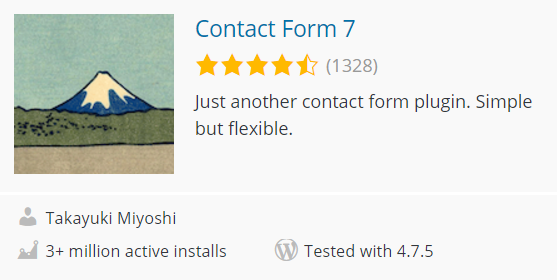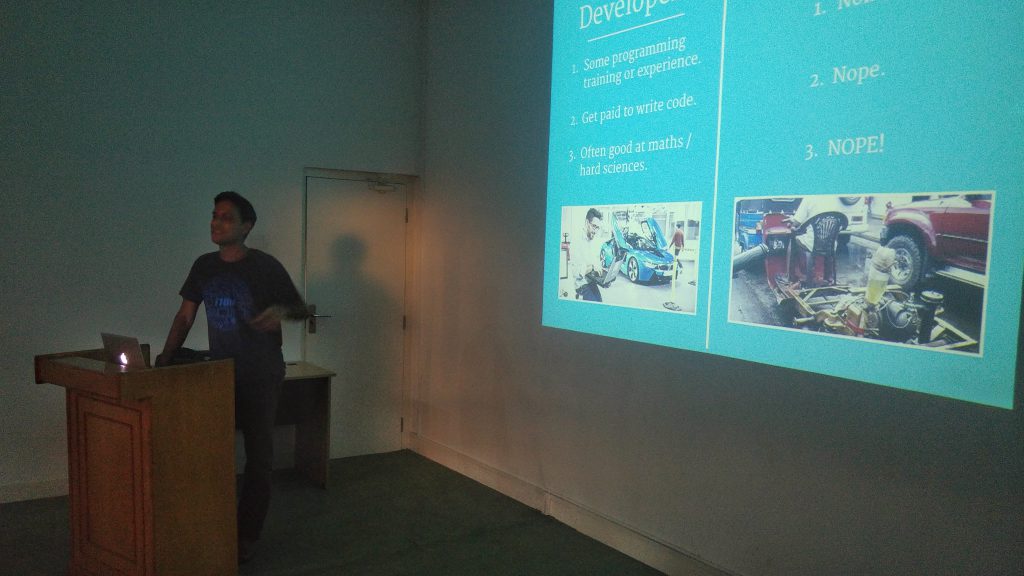 Rahul Bansal is one of the most recognizable faces in the WordPress community in India. As founder of rtCamp Solutions in Pune, he has led his company to become a VIP Service Partner, the first in Asia and among just 13 globally. He travels often to speak at or attend WordCamps and open-source software conferences, and you can catch up with him at an upcoming trip!
Rahul Bansal is one of the most recognizable faces in the WordPress community in India. As founder of rtCamp Solutions in Pune, he has led his company to become a VIP Service Partner, the first in Asia and among just 13 globally. He travels often to speak at or attend WordCamps and open-source software conferences, and you can catch up with him at an upcoming trip!
Rahul has spared time from his tight schedule for an email interview on the subject of adopting WordPress as your technology of choice — from building a career around it, to using it as a robust backend solution for your next project.
Let us take a look at his valuable thoughts.
We often witness skepticism among young engineers when it comes to adopting WordPress as a career option. There is often a feeling about WordPress being for small-timers, or an option of last resort. What would you advise these aspiring web developers?
I often see many newcomers blindly following new trends just because it feels “cool”. At the same time, they feel anything old and established, be it a programming language such as PHP or software such as WordPress, feels too “mainstream” and sometimes “boring”.
In the real world, there is no perfect language or software. Rather than going after trends blindly, it is wiser to pick something based on your interest first.
If you are passionate about a technology, you will be able to do produce high quality work with it. Your skills and experience on a technology matters way more than the technology itself.
Talking about WordPress, yes it’s free and easy to use, so naturally “small-timers” prefer it. But it’s flexible and scalable, as can be seen by its usage among many top web sites such as TechCrunch, Time.com, News Corp group sites.
Of course, getting WordPress to work for big sites requires some additional work, but it is way less than compared to what an engineering team would require to get other alternatives working. So WordPress should not be the last resort, but first choice!
The more experience you gain, you will be amazed to see how fast you can start building on complex ideas.
A common fear in the minds of clients and developers alike is that WordPress is dangerously insecure. In fact, WordPress 4.7 attracted a lot of negative press for a major security issue. How do you think you would dispel such a thinking?
WordPress is open source and used a lot more than its competitors. This means it has more eyes on it, watching it closely. So WordPress issues likely get noticed faster and result in more press coverage. But as WordPress community is big, such issues are fixed very quickly.
I don’t think there exists a decent sized software without security issues. In case of closed source or not-so-popular software, these issues remain undiscovered, but they are still lurking.
Even a company like Apple has had to deal with security issues. So running away from something because of a few security issues won’t help. It’s just like you don’t stop driving because there is data which indicates that thousands die in car accidents.
So the way forward is to follow the established best practices. Like there are things you can do to drive safe, there are things you can do to keep your WordPress safe.
If you are not a WordPress expert, let the expert manage your WordPress. It’s like having a chauffeur to drive you around. Not as cheap as driving yourself, but it can certainly increase safety, provided you hire the right person for the driving job!
Similarly, to keep your WordPress safe, there are many affordable managed WordPress hosting solutions around. Not only they will keep your WordPress safe, they will even protect you from most other security issues.
It is pretty amazing to draw inspiration from rtCamp, looking at the rise from its founding in 2009 to becoming Asia’s first WordPress VIP Partner. Your company is a great boost for web development agencies in the entire region. Do you have some advice for rising WordPress agencies that look to you as a trend setter?
I started a WordPress-only agency because I was using WordPress for my sites, working as a freelancer on WordPress projects already. The “agency” part was a natural progression of my personal needs and professional skills.
I did not start a company with a growth plan or clear goals. So I find it very hard to give any “business advice”. So I will just tell you what worked for us:
- We did what we loved — We started on WordPress when it was small. We used WordPress because it was free and easy. We developed on WordPress because we were using it. At no point, we looked at trends or market share. Working on something that we don’t use always have been out of the question!
- Build a nice work culture — Look at things from an employee’s perspective. If you are running a company where you wouldn’t want to work as an employee, chances are your employees are not passionate or serious about what they do!
- Karma — We started giving back as soon as we could make our ends meet. “ROI” wasn’t even in our dictionary. Giving back hurt us many times but we didn’t stop. Because we were convinced that it was the right thing to do! I believe that good karma prevails in the end. If you are 100% sure you are doing something good, and not getting results, you need to fix something else. Never stop the good act!
- Perspective — When I came out of college, I was already in love with WordPress. I wanted to code on many aspects of WordPress but also needed to earn a living. I made a list of things that were popular in the WordPress ecosystem and searched for projects related to them. If I find a match, I would work for it for as little money as possible. At rtCamp, we still do this. From our perspective, we don’t work for clients. We just want to have fun with technology. Design big stuff. Handle big traffic. Push the limits. Clients are just sponsoring our adventure and in return getting whatever stuff we are building out there. It’s just a coincidence that what we build is useful for our clients!
Could you shed some light on the importance of being part of an active community?
Community involvement is very important. I cannot express this enough in words.
Be it a local meetup group or WordCamp or any other conference — you need to step out and meet people. Speak out loud about your problems. Nobody is perfect and that is fine. The deal is to improve yourself on an ongoing basis. One thing at a time.
Community involvement is not always about getting leads for your business or direct value. It’s all about being open, open to learn and open to change. You may be better at a few things compared to others, but you cannot be great at everything.
When you go out and meet people in your community, you often learn small things from them which can help you big time. Who knows, something you say might help someone else big time too!
The important part is to open yourself to give as well as receive as much as possible.
We all are awestruck by the rise of JavaScript and its conquest of the web. Would you believe WordPress is the ideal backend for most web applications?
I am not sure what you mean by “ideal backend”, but for most content-driven applications, WordPress is a good choice.
It gives you a lot many features to start with and is now available readily over a JSON-based REST API which makes building API-driven applications a breeze.
In my opinion, WordPress is not only good for JavaScript applications, but also mobile applications.
It gives so you many things out of the box to get a great headstart in today’s competitive world!
Thank you so much, Rahul, for all your valuable insights!
We hope this interview serves as an inspiration for budding developers and entrepreneurs in the WordPress community in Sri Lanka.
Do help us spread word about September’s event by sharing this post with your friends. You can also share your thoughts by commenting right here, or on our Facebook page.


 Rahul Bansal is one of the most recognizable faces in the WordPress community in India. As founder of rtCamp Solutions in Pune, he has led his company to become a VIP Service Partner, the first in Asia and among just 13 globally. He travels often to speak at or attend WordCamps and open-source software conferences, and
Rahul Bansal is one of the most recognizable faces in the WordPress community in India. As founder of rtCamp Solutions in Pune, he has led his company to become a VIP Service Partner, the first in Asia and among just 13 globally. He travels often to speak at or attend WordCamps and open-source software conferences, and 